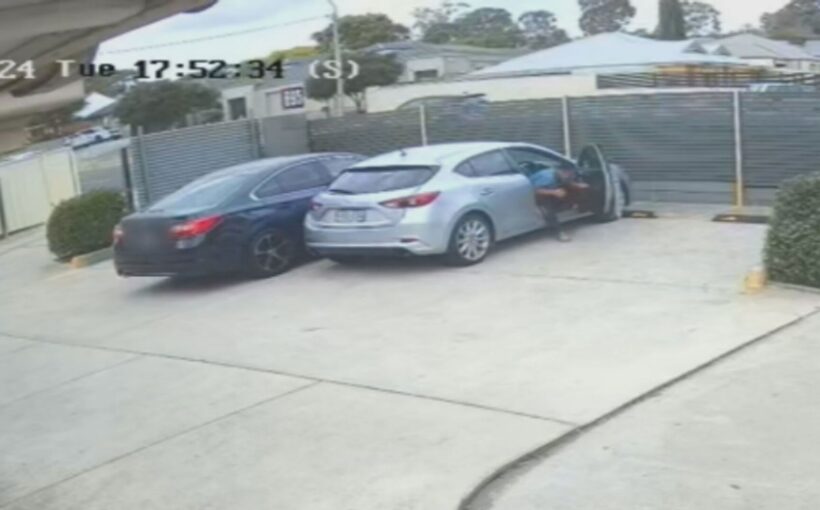A DRIVER has found a way to avoid racking up fees as authorities crack down on drivers who don’t pay their traffic and parking tickets.
As Washington D.C. started to go after “scofflaw drivers” who don’t tend to their tickets from automated speed cameras a local vehicle owner seemingly found a loophole.

Authorities denied that covering a car will prevent a vehicle from getting ticketed, towed or booted[/caption]

The driver accumulated more than 40 tickets but found a way around getting more despite maintaining the same parking practices[/caption]
Details on how the car owner managed to dodge backlash from police after a boot last month were first shared with local news station WTOP by a resident who decided to remain anonymous.
The driver has an out-of-state plate with a record of numerous tickets.
So many citations, in fact, that the D.C.’s website can’t show them all.
The driver accumulated more than 40 tickets but found a way around getting more despite maintaining the same parking practices.
Nearly 30 of the tickets were just issued since early March.
The vehicle owner accumulated an unpaid balance of over $12,000.
The city put a boot on the automobile a little over a month ago but the cat has been able to avoid tickets and booting for the most part, unlike other vehicles in the neighborhood.
When the car was booted recently, the resident got rid of it somehow.
Because of their out-of-state- plate, though the driver is suspected to live in D.C., there’s the question of whether the car’s owner is even receiving their tickets.
Since getting the boot off, the vehicle has still been parked on the streets – just with a cover on it.
“I do think it’s a concern that this is a potential loophole that if someone can just put a cover on the vehicle, then they can escape having any responsibility for their actions,” the neighbor explained.
“And so far, it seemed like that’s been the case with this vehicle.”
Outside of the car owner finding a way to avoid parking tickets and booting, authorities could still impound if it was ever connected to a crime in some way.
But with the situation being unpaid tickets, they fall on the D.C. Department of Public Works (DPW).
What are scofflaw drivers
Scofflaws are penalties imposed as a result of failure to pay a fine.
Washington D.C. Department of Public Works Director Timothy Spriggs described scofflaw drivers as “Drivers who ignore citations endanger all roadway users by fostering a culture of disregard for our laws.”
- The state recently initiated DPW enforcement teams.
- The teams have towed 69 vehicles with $604,404 in unpaid fines since the start of the initiative in early April.
- The program focuses on areas where data shows clusterings of scofflaw vehicles.
The majority of the tickets connected to the vehicle and license plate are from speed cameras.
A number of them were found to be from the same day.
The local resident who brought the information about the covered vehicle to WTOP said any covered vehicle in the city should raise suspicion.
“The likelihood of someone covering a car just to protect it from hail and the outer elements in D.C. is low,” he said.
“The likelihood that they are covering it because they have excessive fines so they’re trying to evade them is significantly higher.”
DPW denied that covering a car will prevent a vehicle from getting ticketed, towed or booted – despite the method seeming to work for the one driver.
Officials even said that its enforcement crews have been looking for the vehicle of the person who feels like they found that loophole.
“The Department of Public Works takes locating scofflaw vehicles and getting them off the street seriously,” DPW said in a statement.
“Parking enforcement officers are trained to inspect all vehicles, including those with car covers. The use of a car cover does not exempt a vehicle from inspection, ticketing, or further enforcement actions.”
The office shared that it urges residents to report vehicles they see violating road laws by submitting 311 requests.
“Such requests are all part of the process of identifying vehicles that may pose a danger to the community,” the statement said.
“And maintaining safe and accessible streets for all.”



